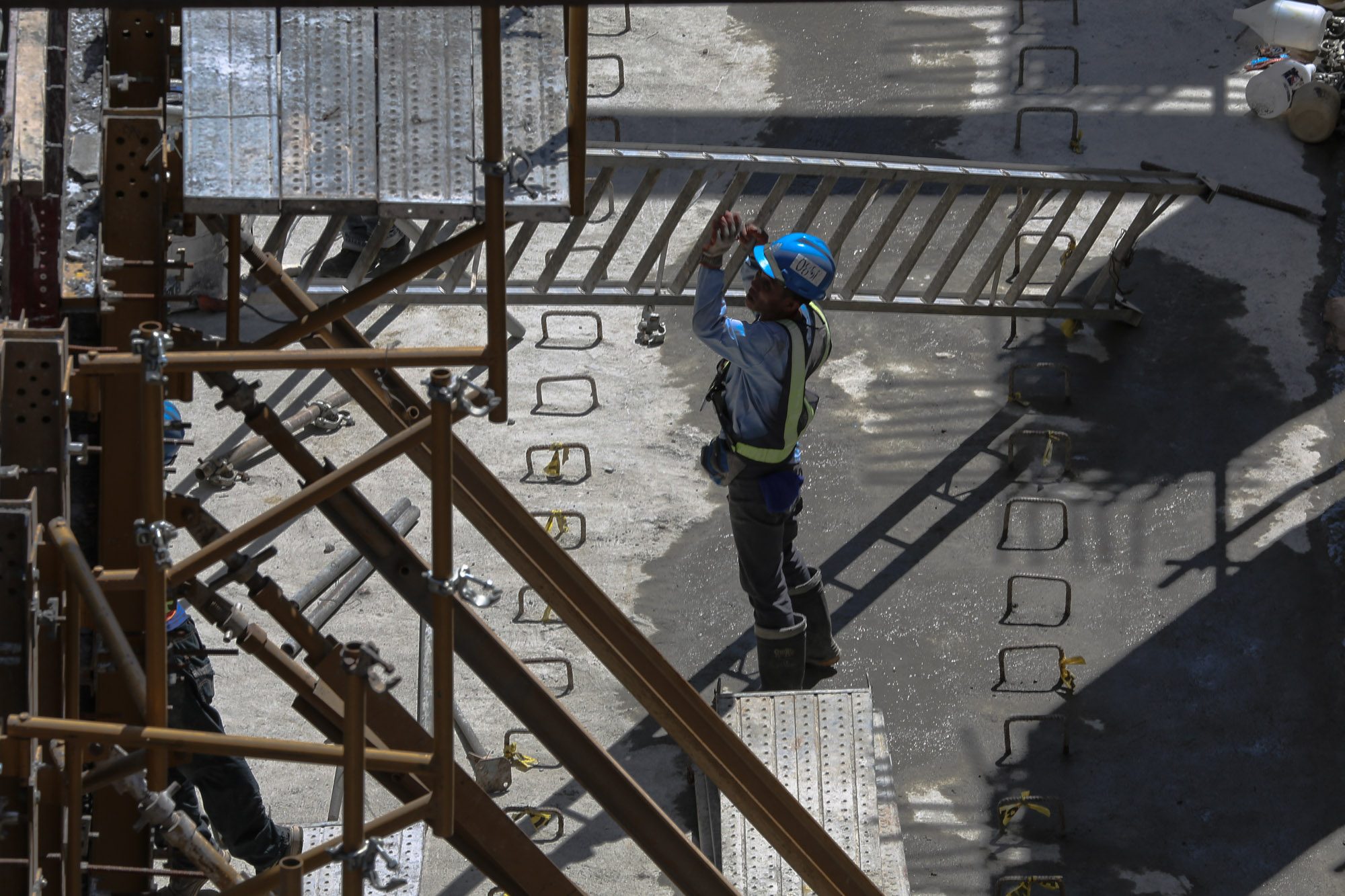SUMMARY
This is AI generated summarization, which may have errors. For context, always refer to the full article.

MANILA, Philippines (3rd UPDATE) – Analysts and experts expected economic growth to slow down, but not as slow as this.
The Philippines’ gross domestic product (GDP) growth for the 1st quarter of 2019 plunged to a 4-year low of 5.6%, said the Philippine Statistics Authority (PSA) on Thursday, May 9.
The 1st quarter growth is the lowest since the 5% recorded in the 1st quarter of 2015.
It is also lower than the revised 6.3% registered during the 4th quarter of 2018, and the 6.5% in the 1st quarter of 2018.
Economic growth from January to March was also below the government’s target of 6% to 7% for the year and below most analyst estimates.
Among major economic sectors, services registered the fastest growth at 7%. Agriculture and industry growth slowed down to 0.8% and 4.4%, respectively.
The GDP is an economic indicator which accounts for all the finished goods and services produced within the country in a specific period. (READ: The Philippine economy’s health under Duterte)
Economic managers earlier warned that the delayed passage of the 2019 national budget would hurt the country’s growth prospects. (READ: Budget deadlock: Who’s to blame?)
Socioeconomic Planning Secretary Ernesto Pernia even went on to say the delay would “wreak havoc” on the economy.
“As we have forewarned repeatedly, the reenacted budget would sharply slow the pace of our economic growth. We estimate that we should have grown by as much as 6.6% this 1st quarter, if we were operating under the 2019 fiscal program,” Pernia said in a press briefing on Thursday.
The budget delay caused government final consumption expenditure to weaken, growing only by 7.4% in the 1st quarter compared to 13.6% in the same period in 2018.
Public construction contracted by 8.6%, as the Department of the Interior and Local Government’s construction of police stations and purchase of new equipment as well as the Department of Education’s rehabilitation of school buildings were severely hampered.
Finance Secretary Carlos Dominguez III previously said the government was unable to spend over P700 million each day that the country operated under a reenacted budget. From January to March alone, Dominguez estimated that the government was unable to spend around P47 billion for projects.
Moving forward
In a statement on Thursday, Dominguez said the GDP figure for the 1st quarter was nonetheless a “decent expansion.”
But he noted that the economic team will have to implement a “catch-up plan” on government investments to offset the lower spending in the 1st quarter.
“We expect growth to pick up on higher state spending in continuance of last year’s upward momentum,” the finance chief added.
To avoid further delays, Pernia recommended that the Department of Budget and Management issue the budget circular for the General Appropriations Act “as soon as possible.”
“While we support the implementation of the cash-based budget system, the supervening circumstances – such as the delayed budget and the election season – warrant an urgent review of the cash-based budgeting rules,” Pernia said.
He also said that if the payment period and budget validity are not extended, agencies may “decide to forgo implementing new programs and projects that are expected to take longer than 7 months to complete, inclusive of the procurement process.”
Moreover, the country’s top economist said the economy needs to grow at least 6.1% in the succeeding quarters to still meet the lower end of the government’s target.
The budget delay, along with weather disturbances and the trade war between the United States and China, also prompted multilateral lenders like the World Bank and the Asian Development Bank to trim projections for the entire year.
President Rodrigo Duterte was only able to sign the P3.757-trillion budget last April 15. – Rappler.com
Add a comment
How does this make you feel?
There are no comments yet. Add your comment to start the conversation.